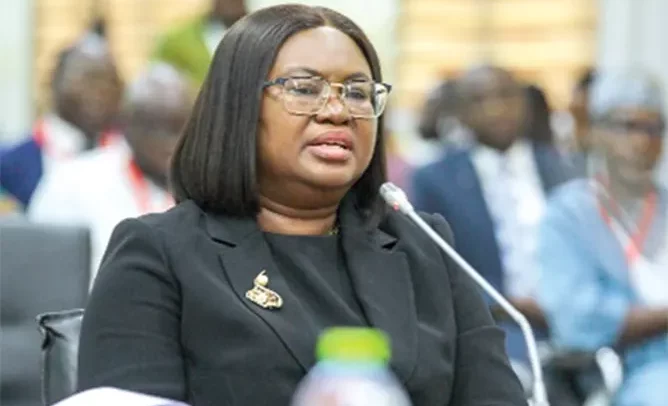Justice Hafisata Amaleboba
Supreme Court nominee, Justice Hafisata Amaleboba, has underscored the need to safeguard the neutrality of the chieftaincy institution by ensuring that it remains insulated from partisan politics.
Appearing before Parliament’s Appointments Committee yesterday, Justice Amaleboba explained that the constitutional prohibition on Members of Parliament (MPs) holding chieftaincy titles is a deliberate safeguard to prevent the politicisation of traditional leadership.
“The Chiefs on the Judiciary serve as Chiefs with the permission of the Judicial Council. I believe that because the Constitution wants to ensure that chieftaincy is insulated from politics, Members of Parliament are not supposed to be Chiefs. Chiefs are expected to be neutral. If you become a politician and also want to become a Chief, it would politicise the institution. That is probably the reason why the Constitution does not permit it,” she stated.
She further explained that judges who are also chiefs must exercise caution in their public commentary, particularly on political matters.
“As a judge and a chief, you ought to be measured in your commentary on politics, especially in support of one group or the other,” she said and added, “Judges should always be careful in their language to preserve the integrity of the judiciary.”
Justice Amaleboba also emphasised the importance of experience at the highest levels of the judiciary, stating that the Supreme Court, as the final appellate and constitutional court, requires jurists who possess substantial legal expertise and depth.
“We need qualified and experienced judges who can adjudicate matters that will stand the test of time and guide younger judges,” she said.
Responding to a question on political advice, she respectfully declined to offer counsel to politicians, stating, “Please let the cup of advising the politicians bypass me.”
However, the Supreme Court nominee acknowledged the competence of her colleagues at the Court of Appeal, with whom she had worked, and expressed her deep respect for them.
Justice Amaleboba defended her nomination, stressing that the decision lies within the constitutional powers of the President. “Nominating a judge for the Supreme Court is the prerogative of the President, and the President has exercised that discretion. I believe I am qualified,” she affirmed.
She detailed her extensive legal career, highlighting over 15 years in private legal practice, 11 years on the bench, and a cumulative 26 years at the bar. “I am capable and competent to discharge the duties of a Supreme Court judge,” she concluded.
By Ernest Kofi Adu, Parliament House


